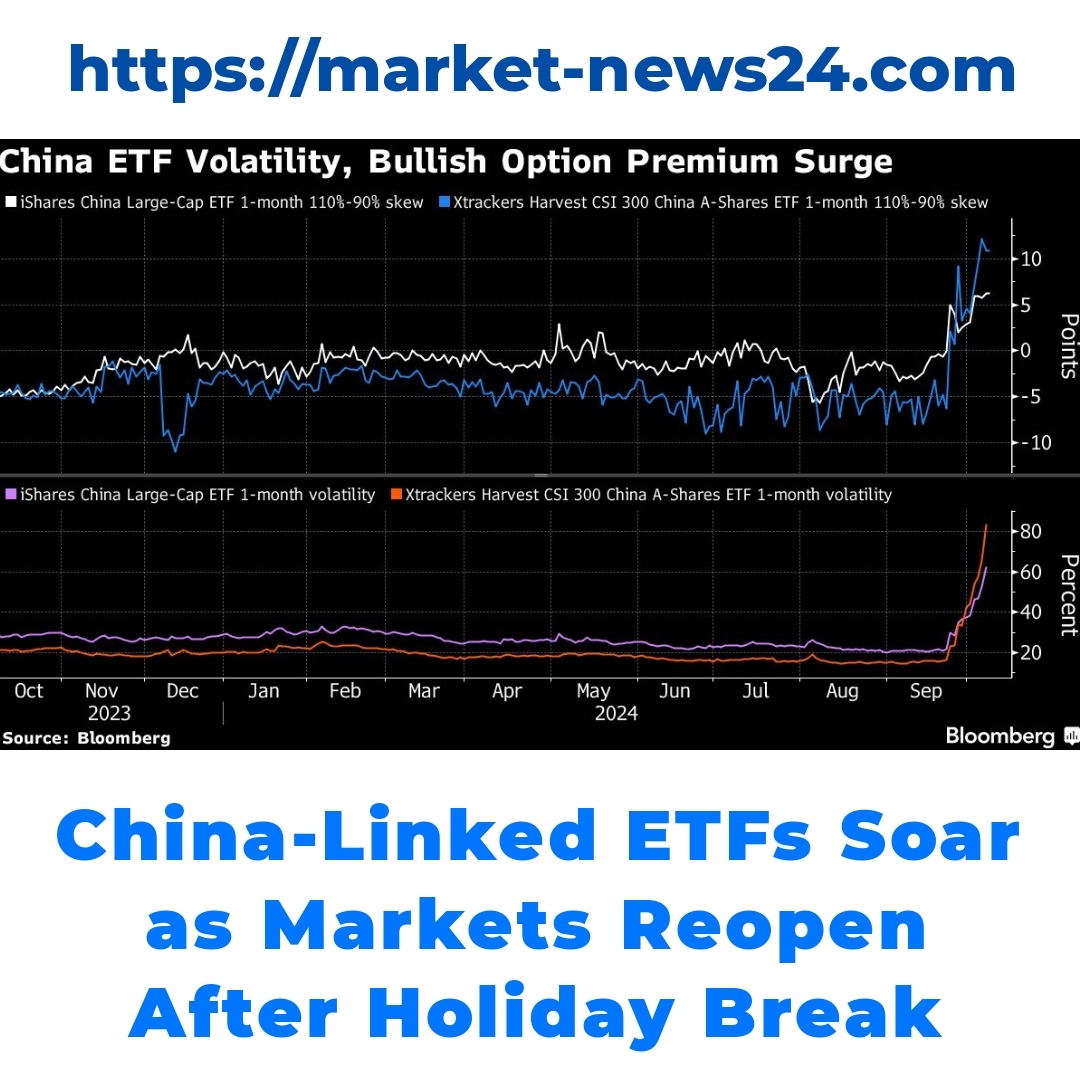China-linked ETFs play a crucial role in the US markets, offering investors exposure to the growing Chinese economy. Recently, as these ETFs have seen a rally due to the upcoming holiday reopening of onshore markets, trading costs for short-term options have risen significantly. This trend is worth exploring for investors looking to navigate the evolving landscape.

Understanding China-Linked ETFs
China-linked ETFs are exchange-traded funds that allow investors to gain exposure to companies in China. These financial instruments are crucial for diversifying investment portfolios in the US markets, giving investors a chance to tap into the growth potential of the Chinese economy. Over the years, the popularity of China-linked ETFs has surged, making them a significant player in investment strategies for many.
The Recent Market Rally
Recently, there has been a notable rally in the market, which significantly influences China-linked ETFs. This rally is driven by several factors, including positive economic indicators and a favorable shift in investor sentiment. With the upcoming holiday reopening of onshore markets, many are optimistic that this trend will continue, further boosting these ETFs. Such rallies historically lead to increased trading activity, affecting everything from pricing to investor strategies.
Cost of Short-Term Options on China ETFs
As China-linked ETFs gain traction, investors are noticing a significant rise in the costs associated with short-term options on these funds. A comparison with historical trading costs reveals a concerning upward trend, primarily influenced by market dynamics and increased volatility. These rising costs can greatly impact investor strategies, particularly for those who use options as a way to hedge their investments or speculate on price movements.
Trading China-Linked ETFs in the US Markets
Trading China-linked ETFs in the US markets comes with its unique set of considerations. Unlike direct investments in Chinese stocks, these ETFs offer a more accessible way to participate in the Chinese economy. Their structure often mirrors the dynamics of onshore markets but allows US investors to bypass some of the regulatory hurdles associated with trading in China. However, investors must remain attentive to the implications of trading costs and market conditions when considering these funds.
Strategies for Investing in China-Linked ETFs
Navigating the landscape of China-linked ETFs requires effective investment strategies. Understanding the effects of market rallies on ETF prices is essential for making informed decisions. Here are some tips to help maximize returns while managing trading costs:
– Stay Updated: Keep an eye on economic indicators that may affect Chinese markets.
– Diversify: Don’t put all your eggs in one basket; consider various sectors within China.
– Use Limit Orders: To manage trading costs better, consider using limit orders when buying or selling these ETFs.
The Broader Implications for the Asian Stock Market
Movements in China-linked ETFs often reflect broader trends in the Asian stock market. There’s a noticeable correlation between US markets and various Asian financial markets, particularly with China being a major player. Current rally dynamics suggest that if this trend continues, we could see a spillover effect benefiting not only US investors but also those in the broader Asian landscape. Predictions for future trends will hinge on how the market reacts to ongoing developments and the economic landscape in Asia.
Conclusion
In summary, the rising costs of short-term options, the impact of recent market rallies, and effective investment strategies are key considerations for anyone involved in China-linked ETFs. As market conditions evolve, staying informed and adaptable is crucial for investors looking to thrive in this dynamic environment. With the right approach, China-linked ETFs can provide significant opportunities, but being aware of the associated trading costs is essential for successful investing.
Frequently Asked Questions about China-Linked ETFs
What are China-Linked ETFs?
China-linked ETFs are exchange-traded funds that invest in companies based in China. They provide investors a way to diversify their portfolios by tapping into the growth potential of the Chinese economy.
Why have China-Linked ETFs become popular recently?
The popularity of China-linked ETFs has surged due to favorable economic indicators, a positive shift in investor sentiment, and the potential for significant growth in the Chinese market.
How do market rallies affect China-Linked ETFs?
Market rallies can lead to increased trading activity in China-linked ETFs. Rising investor optimism typically boosts ETF prices, reflecting broader trends in the Chinese and Asian markets.
What should I know about trading costs?
Investors should be aware that the costs associated with short-term options on China-linked ETFs have risen. This can impact strategies for those looking to hedge investments or speculate on price movements.
How can I effectively invest in China-Linked ETFs?
- Stay Updated: Keep track of economic indicators affecting Chinese markets.
- Diversify: Invest in various sectors within China to spread risk.
- Use Limit Orders: This can help manage trading costs when buying or selling ETFs.
What are the broader implications for the Asian stock market?
China-linked ETFs often reflect broader trends within the Asian stock market. Movements in these ETFs can indicate potential spillover effects that benefit both US and Asian investors.






